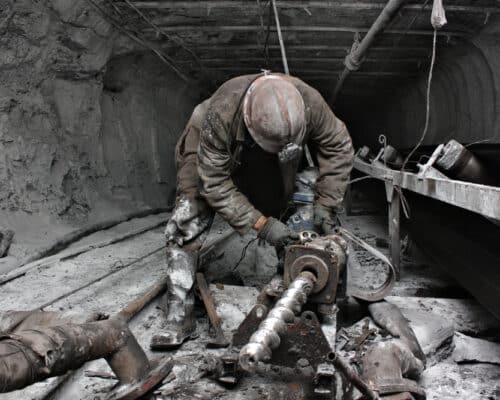Fossil Fuel
Taiwan’s Tech Giant TSMC’s Net Zero Pathway Falls Short
Giant chipmaker TSMC is facing a backlash over its enormous fossil fuel usage and carbon emissions, even as much of the global tech sector cleans up its carbon footprint.
Coal Phase-out Accelerates Globally Except in China: ‘Boom and Bust’ 2023
Thanks to its unprecedented renewable energy capacity additions, China was poised to be a leader in the battle against climate change. However, its coal pivot risks tarnishing that.
Fossil Fuel Imports Risk Japan’s Energy Security
Japan has low domestic fossil fuel production yet relies on fossil fuels for most of its energy. High dependence on foreign imports is creating energy security concerns. However, Japan remains seemingly uncommitted to completely phasing out fossil fuels, lagging behind other G7 nations.

G7 Ministers’ Meeting 2023: What Is the Desired Outcome?
The G7 Climate and Energy Ministerial Meeting is shaping up to be a roadshow for Japan's questionable technologies. If the world is to stand a chance in limiting climate change to 1.5°C, the G7 reject the proposals, speed up coal phase-out and limit gas investments.
Cost and Viability Plague Carbon Capture and Storage in the Power Sector
Carbon capture and storage (CCS) is being pushed as a decarbonisation pathway for the power sector. However, all commercial-scale CCS projects paired with thermal power plants have underperformed, and costs are prohibitively high. Alternatively, wind and solar are both proven, cost-efficient technologies. Investors and decision-makers need to refocus their efforts on transitioning away from fossil fuels.
Japan-Vietnam Energy Relations: Opportunities and Risks
Vietnam needs a partner that will prioritise its decarbonisation and access to affordable and ready-to-be deployed solutions to make the most of its clean energy potential. It doesn't need to be pushed towards distracting technologies with questionable decarbonisation credentials. The approach that Japan will take in its cooperation remains to be seen.
Oil Spill in the Philippines Implicates San Miguel Corporation
A major oil spill in the Philippines raises concerns over a corporate giant’s refusal to accept responsibility for the disaster. It also raises concerns over its dismal environmental record due to liquefied natural gas (LNG) development. The government is waffling, and the environment, local residents and fisherfolk are suffering.
Major LNG Liquefaction Projects 2023-2027
Global LNG capacity is set to increase by 35% by 2027, ushering in a new round of carbon emissions-intensive LNG projects. However, the world needs fewer fossil fuel project developments, not more, to reach net-zero by 2050.
The IEA’s Global Methane Tracker 2023: Methane Emissions Reduction No Longer Complicated or Expensive
The IEA's latest report, which includes valuable recommendations and an actionable roadmap for curbing methane emissions. It proves that the oil and gas industry and governments now have all the means to start working on methane emissions reduction.

The Future of Natural Gas In Asia
A recent ERIA-backed workshop calls for more natural gas usage in Asia until at least 2050. However, energy economics, long-term economic stability and climate mitigation dynamics throw doubt on those conclusions.
The Power Sector in Bangladesh Is Slowing Its Economic Growth
Bangladesh's energy crisis rocked the country in the second half of 2022. Brought on by record-high LNG prices, the country – which is heavily reliant on natural gas – had to limit local energy consumption. Rolling blackouts, power-shedding and other energy-saving measures have been significant roadblocks for the country's growing manufacturing sector.
Asia’s Role in the Russia-Ukraine War: One Year Later
A little over a year after the start of the war in Ukraine, CREA's data reveals that countries continue actively buying Russian fossil fuels, with Asian nations among the leading contributors to Russia's state budget.

China’s Fossil Fuel Addiction and the Green Transition
China's renewables development leads the world by a more than a two-to-one ratio, but its fossil fuel usage still accounts for more than 50% of its power production needs, creating the world’s highest GHG emissions.
Greenwashing Ads: Fossil Fuel Giants Dominate Social Media
Social media platforms are proving the perfect environment for the oil and gas industry to run greenwashing campaigns. Without swift and adequate action, tech companies risk becoming complicit partners in delaying and derailing necessary climate action.
Most Popular
Categories
-
9
-
33
-
126
-
4
-
17
-
43
-
52
-
11
-
10
-
15
-
24
-
6
-
6
-
250
-
196
-
14
-
23
-
1
-
1
-
23
-
38
-
42
-
84
-
18
-
82
-
41
-
17
-
10
-
40
-
43
-
86
-
284
-
21
-
40
-
35
-
10
-
41
-
36

